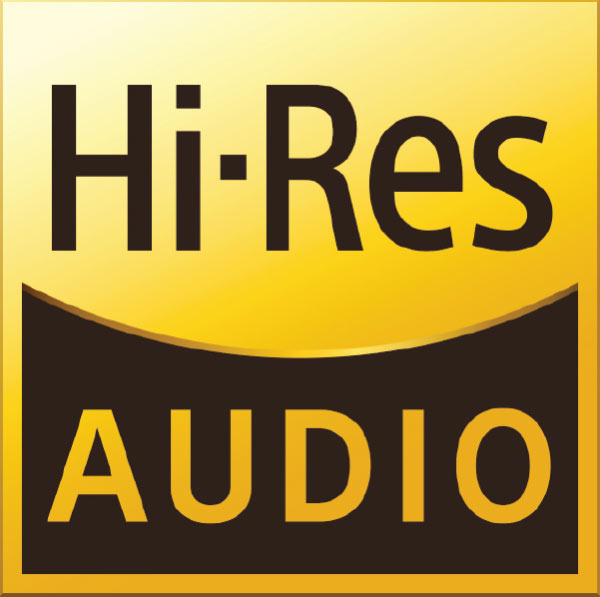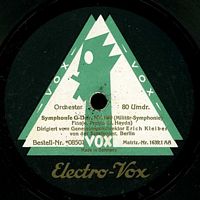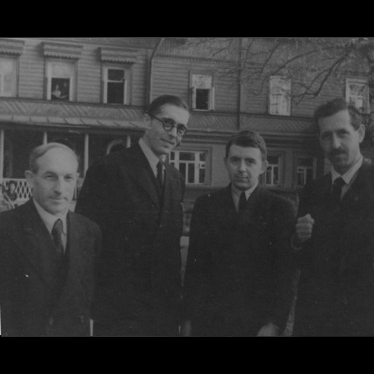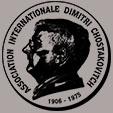Étiquette : Haydn
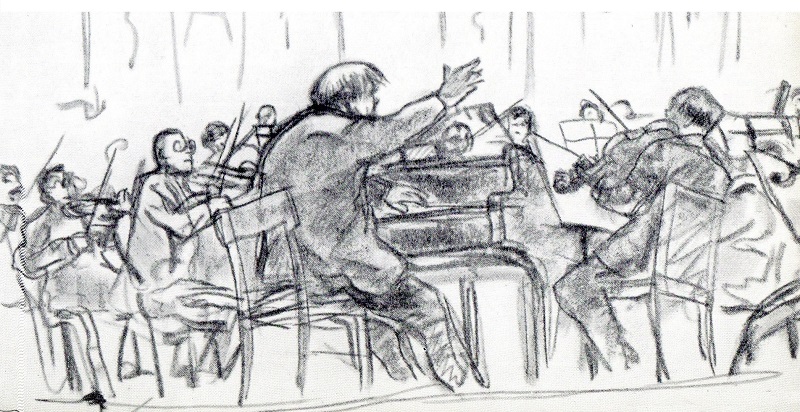
Maestro Editions qui a déjà publié le concert dirigé par Edwin Fischer lors du Festival de Strasbourg 1953, nous offre des inédits d’importance provenant cette fois du Festival de Salzbourg, où Fischer dirige les Wiener Philharmoniker. Il s’agit de la totalité du concert du 30 juillet 1951 (Mozart Concerto n°24 K.491, Haydn Symphonie n°104 et Beethoven Concerto n°1 Op.15) et du seul enregistrement qui subsiste du concert du 1er août 1949 (Beethoven Concerto n°4 Op.58).
Pour plus de détails, suivez ce lien:
Maestro Editions, which has already published the concert conducted by Edwin Fischer at the 1953 Strasbourg Festival, is now offering us some important previously unreleased material from the Salzburg Festival, where Fischer conducts the Wiener Philharmoniker. It is comprised of the entire concert of 30 July 1951 (Mozart Concerto No. 24 K.491, Haydn Symphony No. 104 and Beethoven Concerto No. 1 Op.15) and of the only surviving recording of the concert of 1 August 1949 (Beethoven Concerto No. 4 Op.58).
For more information, follow this link:
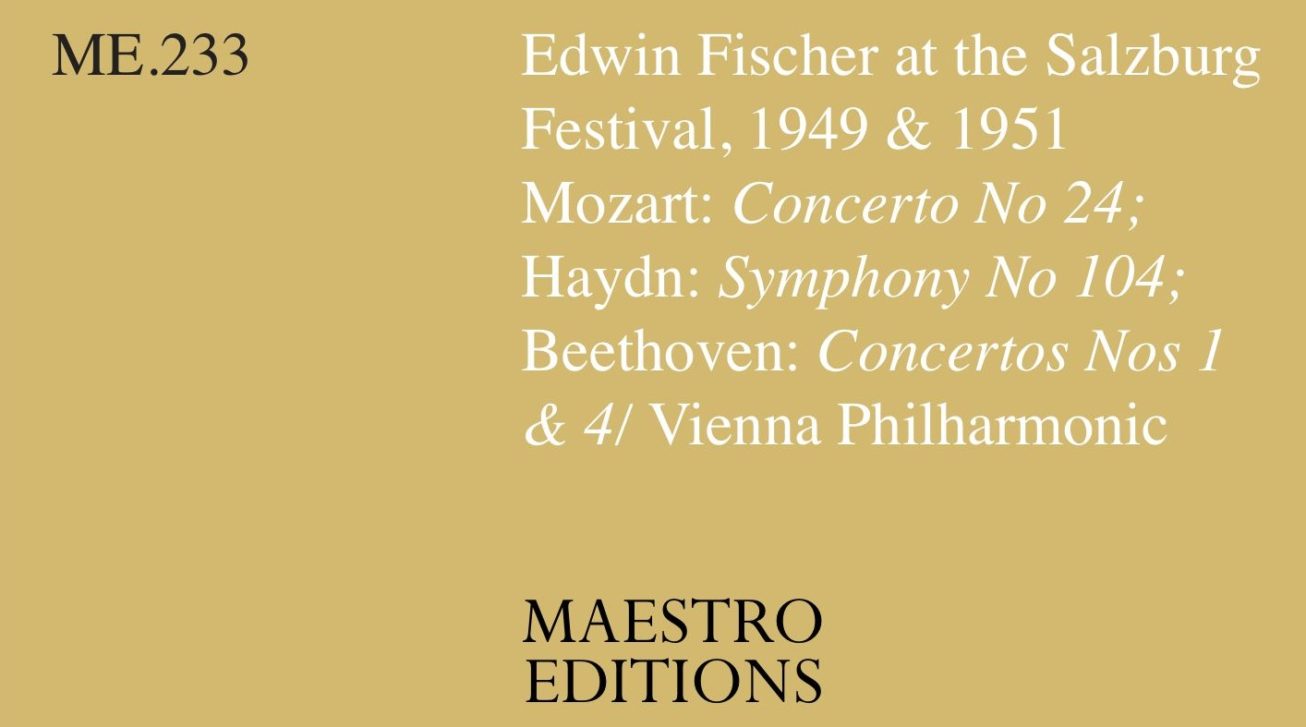
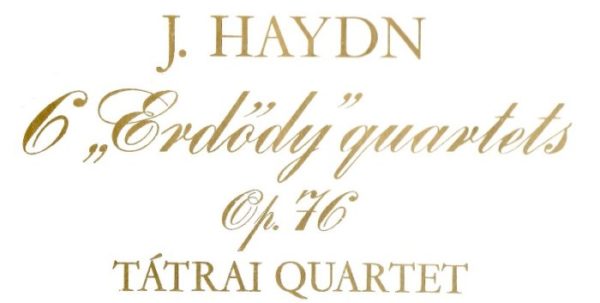
Haydn Quartets Op. 76 n° 4 – 6
Tátrai Quartet: Vilmos Tátrai, Mihály Szűcs, violin I & II; György Konrád, viola; Ede Banda, cello
Enr/Rec: Budapest 1964 – Prod: Dóra Antal (n°4 & 5); János Mátyás (n°6)
Eng: László Csintalan (n°4 & 5) ; Endre Radányi (n°6)
Source: 33t/LP Qualiton LPX 1205-7
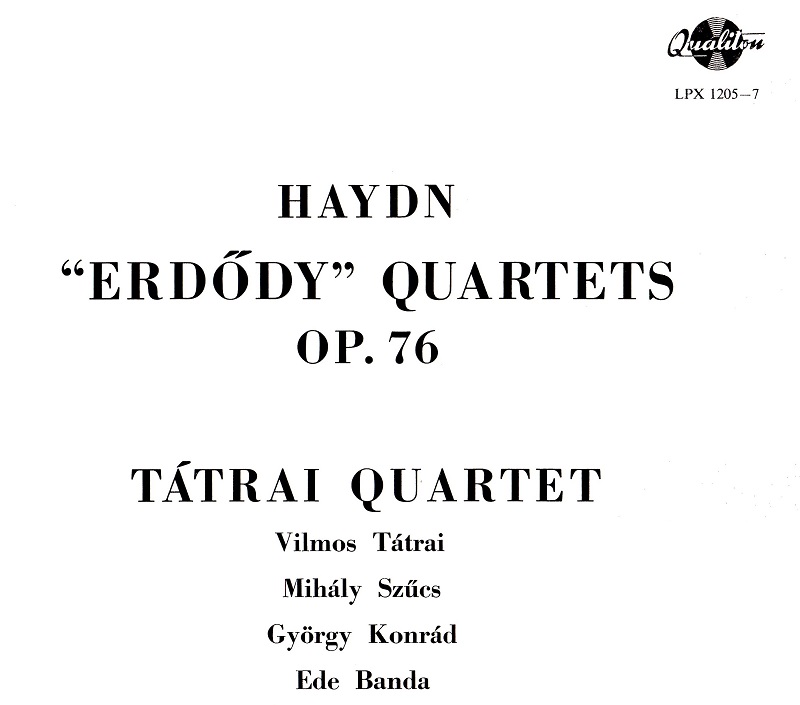
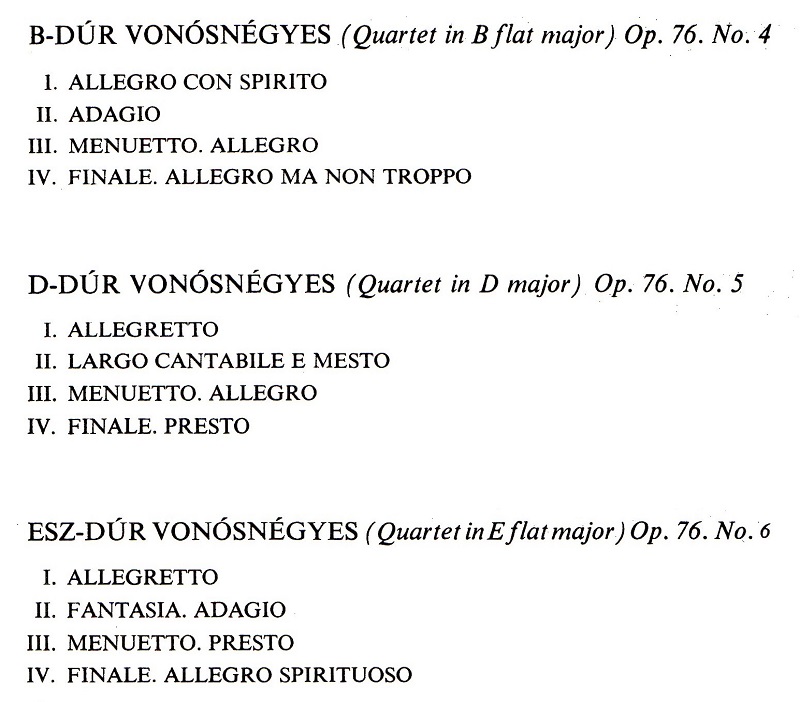
Voici le deuxième volet de l’Opus 76 de Joseph Haydn avec les Quatuors n°4 à 6 dans la version de référence du Tátrai Quartet. Bonne écoute!
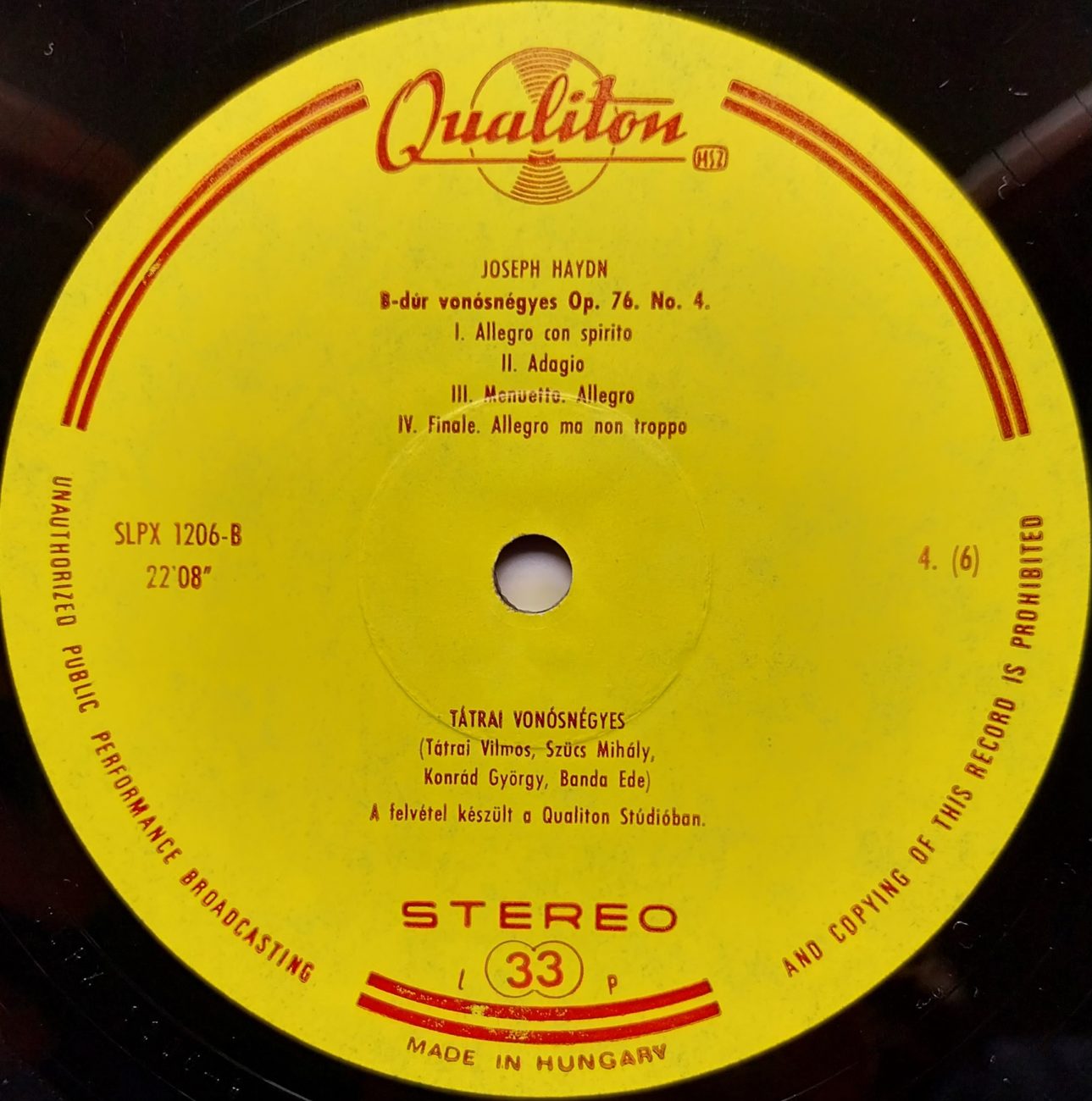
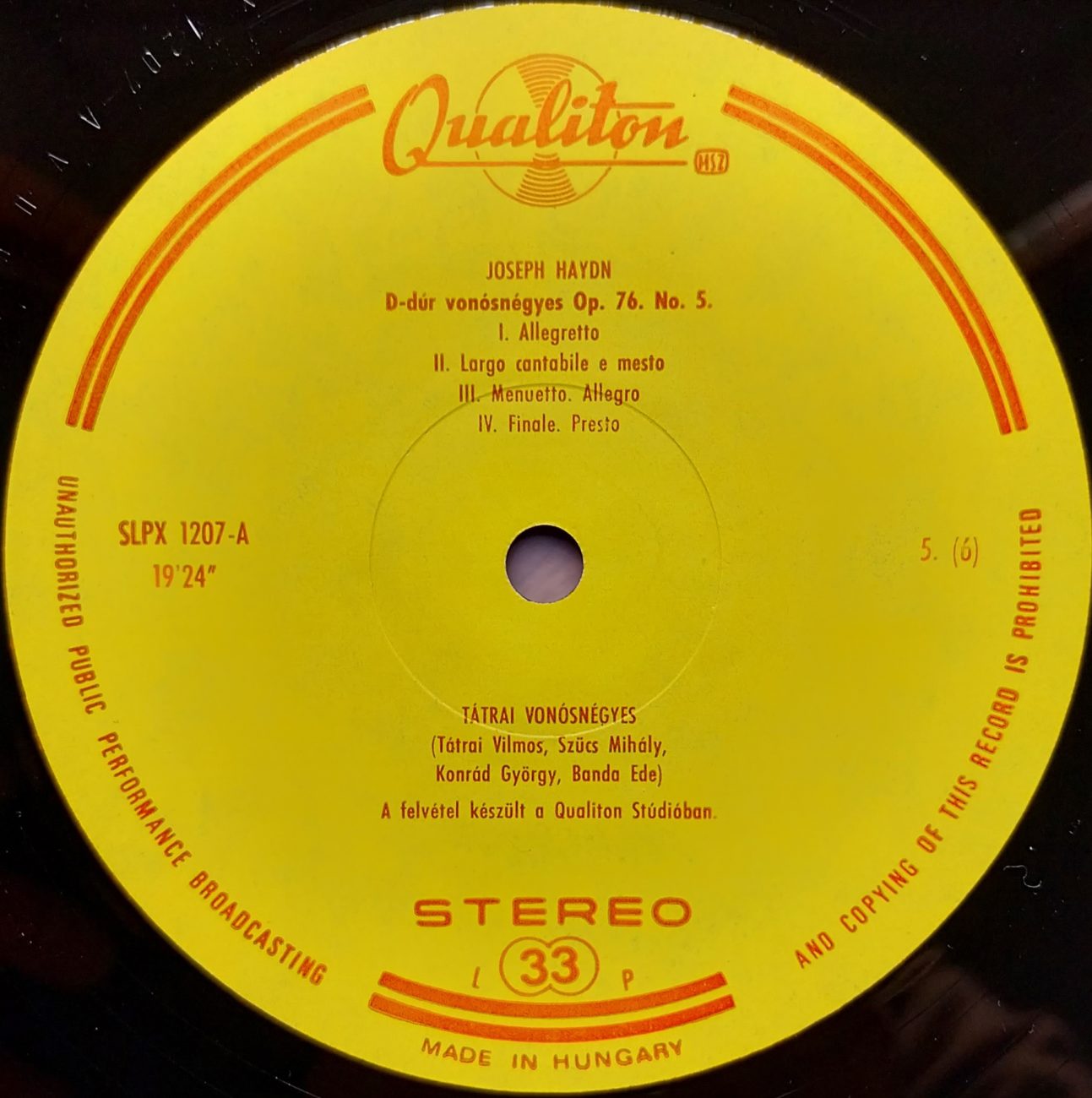
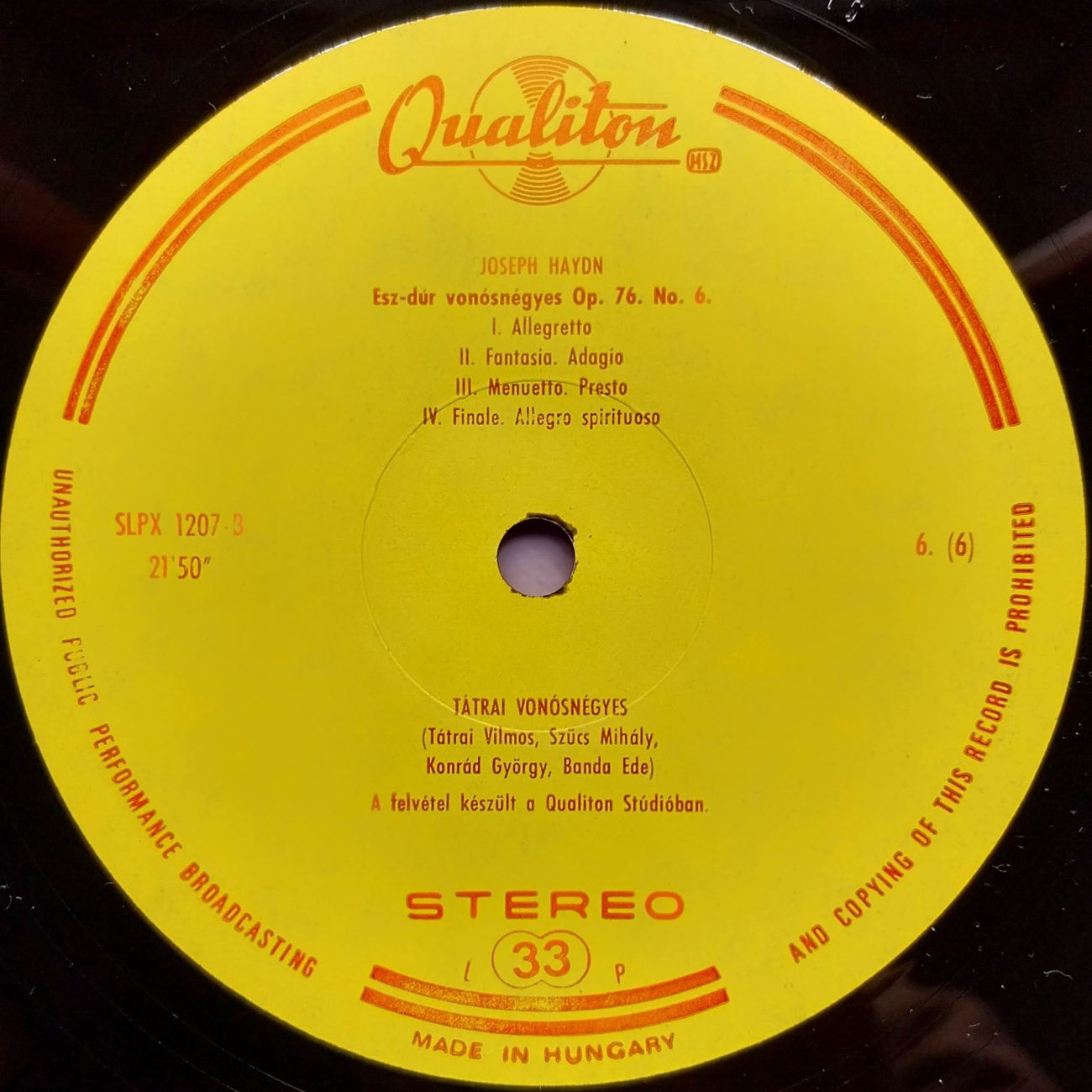
Here is the second part of Joseph Haydn’s Opus 76 with the Quartets n°4 to 6 in the reference version of the Tátrai Quartet. Enjoy your listening!

Haydn Quartets Op. 76 n° 1 – 3
Tátrai Quartet: Vilmos Tátrai, Mihály Szűcs, violin I & II; György Konrád, viola; Ede Banda, cello
Enr/Rec: Budapest 1964 – Prod: Dóra Antal (n°1 & 3); János Mátyás (n°2)
Eng: László Csintalan (n°1 & 3) ; Endre Radányi (n°2)
Source: 33t/LP Qualiton LPX 1205-7

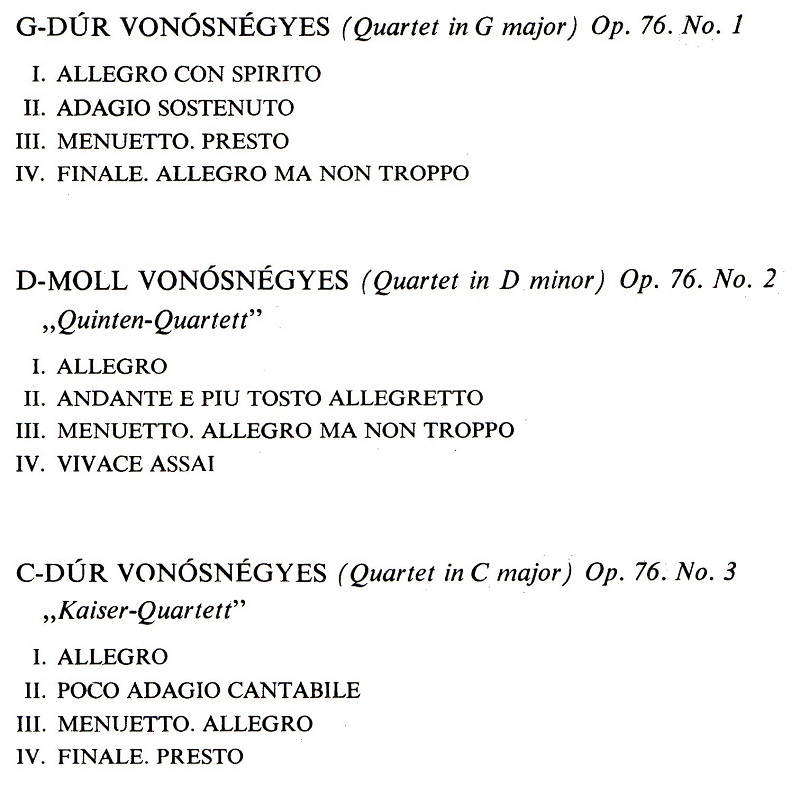
Le Quatuor Tátrai a commencé par cet Opus 76 en 1964 son enregistrement de l’intégrale des Quatuors de Haydn qu’il mettra vingt ans à mener à bien. Ces disques ont été considérés dès leur parution comme une version de référence. D’ailleurs, Sviatoslav Richter appréciait cet enregistrement. Les microsillons de la firme Qualiton ont été réalisés avec le plus grand soin depuis la prise de son jusqu’à la gravure et le pressage. Par contre, les reports en CD sous le label Hungaroton sont décevants. Un nouveau report à partir des microsillons s’impose donc.
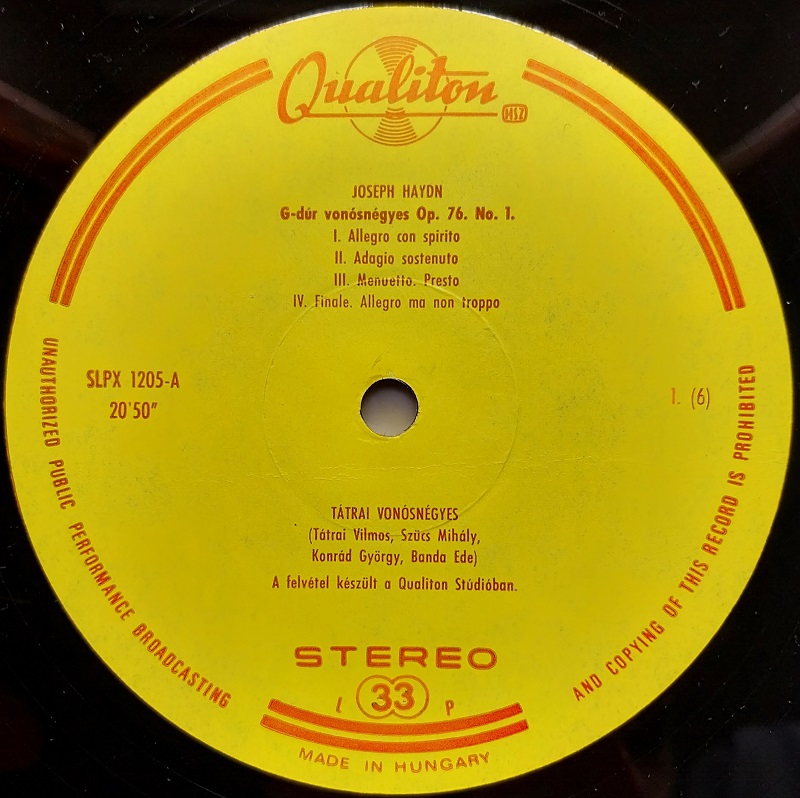
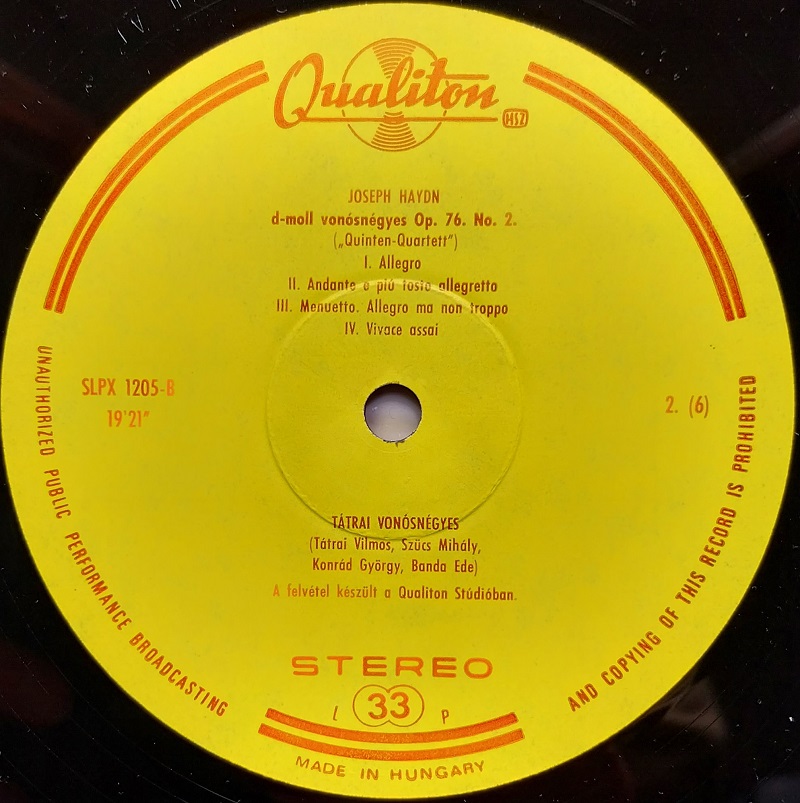
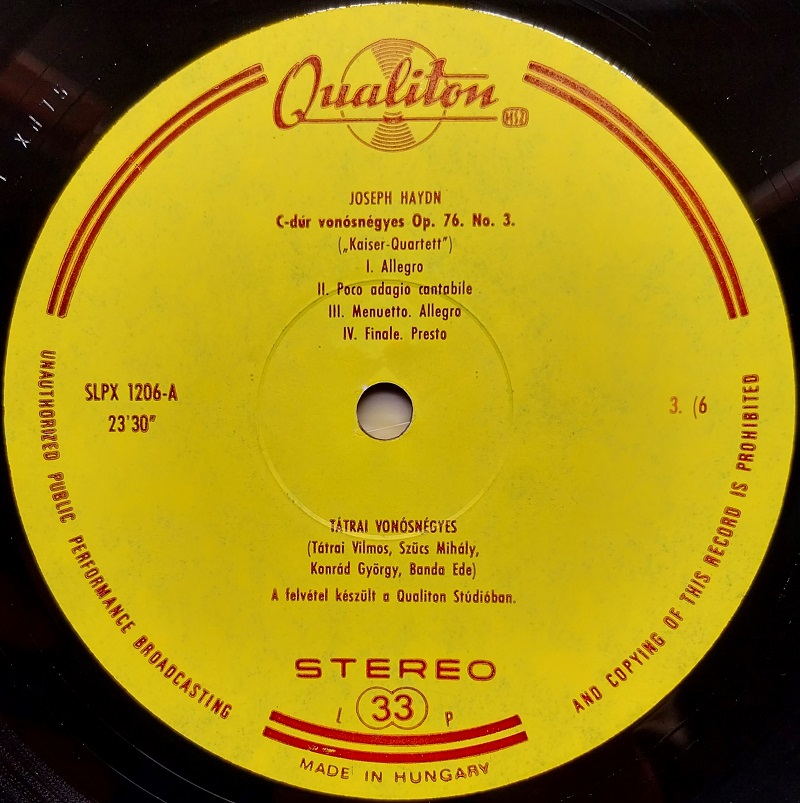
The Tátrai Quartet began their complete recording of the Haydn Quartets with this Opus 76 in 1964, a project that took them twenty years to complete. These LPs have been considered a reference version since their release. We know that Sviatoslav Richter appreciated this recording. The LPs on the Qualiton label were made with the greatest care, from the recording to the engraving and pressing. On the other hand, the reports on CD under the Hungaroton label are disappointing. A new transfer from the LPs is therefore welcome.
A la demande amicale d’un habitué de ce blog / By request of a friend of this blog.

Fritz Busch – Radio Symfoniorkestret Statsradiofoniens Kor
Orchestre et Chœurs de la Radio Danoise / Danish Radio Orchestra and Choir
Copenhagen Odd Fellow Palæet
Source: Bandes 38 cm/s / 15 ips Tapes
Haydn Die Schöpfung Hob. XXI:2 – Part II:
Erna Berger, soprano; Julius Patzak, tenor; Alexander Kipnis, Bass – 6 December 1934
n°14 ‘Und Gott sprach’ & n°15 Arie ‘Auf starkem Fittiche’ Erna Berger
n°20 ‘Und Gott sprach’ & n°21 ‘Gleich öffnet sich der Erde Schoss’ Alexander Kipnis
n°23 ‘Und Gott schuf den Menschen’ & n°24 Arie ‘Mit Würd und Hoheit angetan’ Julius Patzak
n°28 Chor ‘Vollendet ist das grosse Werk’*
*inédit/never published before in any format
______________
Beethoven: Erika Rokyta, soprano; Ingeborg Steffensen, mezzo; Koloman von Pataky, tenor; Alexander Kipnis, bass
Missa Solemnis Op.123 Sanctus – 14 February 1935
Symphonie n°9 Op.125- IV Presto – Allegro assai – Presto – 12 April 1934**
** Report, Montage et ‘Mastering’ / Transfer, Editing and Mastering: Charles Eddi
Alexander Kipnis et Fritz Busch se sont produits ensemble à de nombreuses reprises, comme ici à la Radio Danoise, mais aussi au Teatro Colón de Buenos-Aires, notamment Mozart Don Giovanni (Commendatore), Strauss Arabella (Graf Waldner), Rosenkavalier (Ochs), Wagner Fliegende Hollander (Daland), Götterdämmerung (Hagen), Lohengrin (König Heinrich), Parsifal (Gurnemanz), Rheingold (Fasolt), Tannhäuser (Hermann), Tristan (Marke), et Walküre (Hunding), à l’Opéra de Montevideo pour Wagner Walküre (Hunding), et brièvement au MET pour deux opéras de Wagner, Tristan und Isolde (Marke) et enfin Tannhäuser (Hermann) pour la dernière représentation en public d’un opéra par Kipnis le 6 mai 1946.
Au milieu des années trente, Kipnis était à son sommet, et ces enregistrements le montrent, dont le couronnement est sa participation véritablement historique à la Neuvième Symphonie de Beethoven, où il est bien meilleur qu’avec Toscanini (Teatro Colón 24 juillet 1941 – Music & Arts CD-1119).
Dans le Finale de la ‘Neuvième’, Busch prend un maximum de risques, en n’hésitant pas à pousser l’orchestre et les chœurs au-delà de leurs limites, ce qui par moment mène l’exécution au bord de la rupture. On n’est pas habitué à une telle tension de la part de ce chef, dont la réputation est plutôt celle d’un classique. Sur ce plan, cet enregistrement est vraiment un témoignage unique.
On notera que l’enregistrement du Chœur n°28 qui termine la deuxième partie de la Création (Die Schöpfung) de Haydn est un inédit.
Nous pouvons également à cette occasion entendre d’autres chanteurs célèbres, à savoir Erna Berger, Julius Patzak et Koloman von Pataky.
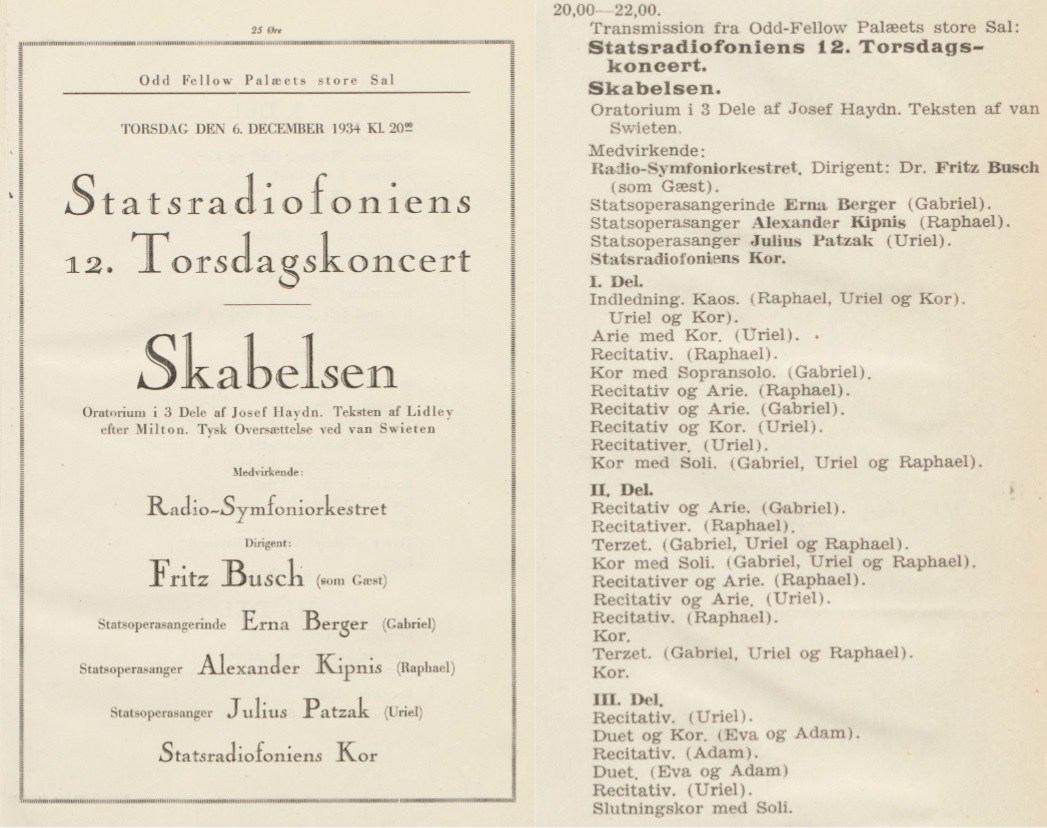

Odd Fellow Palæet
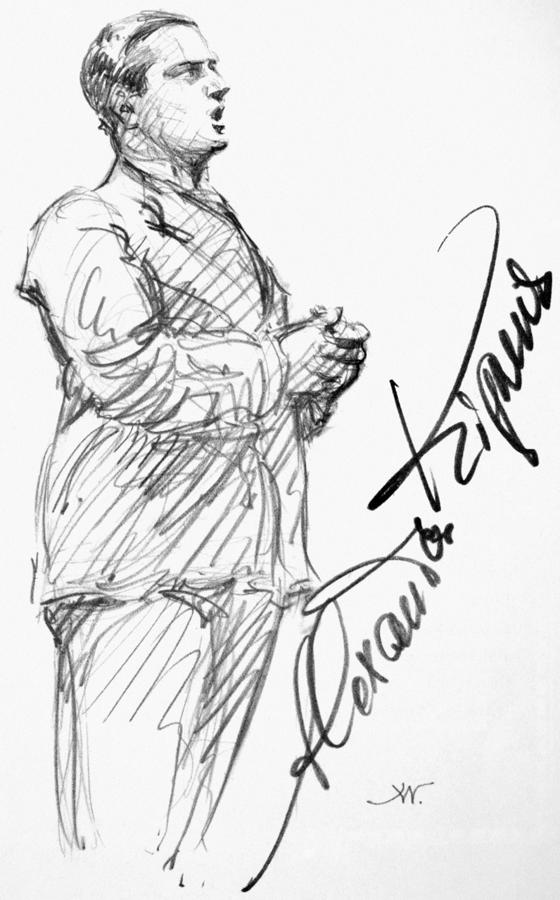
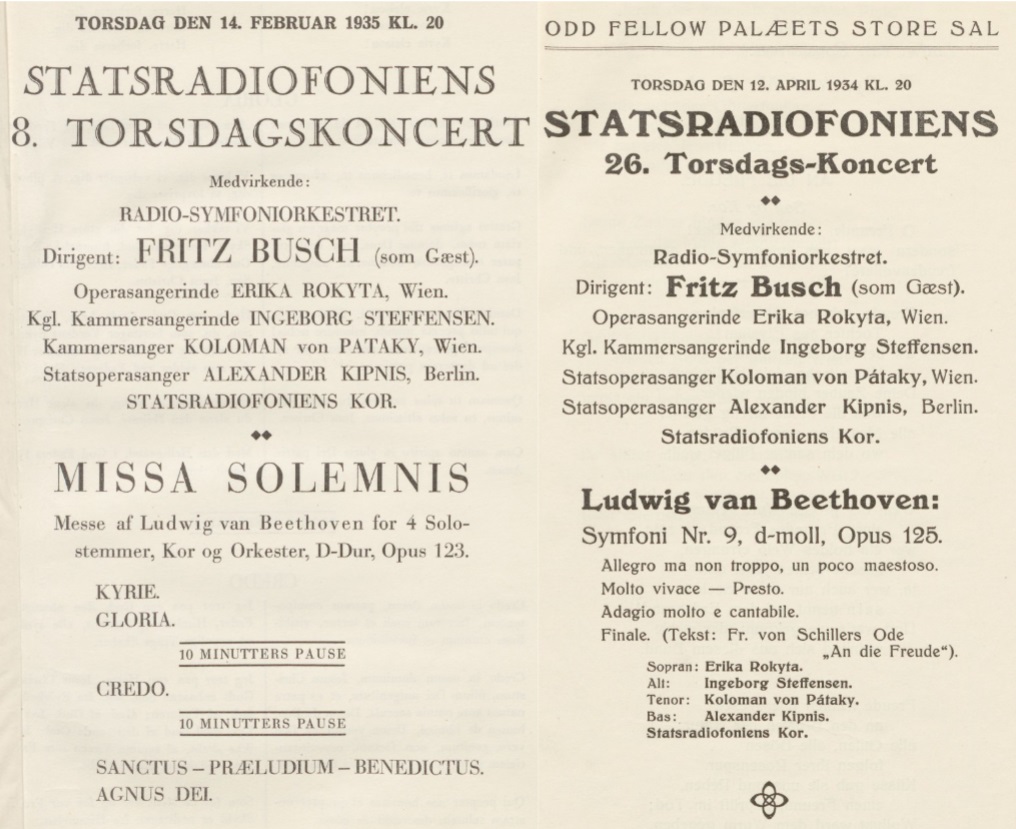
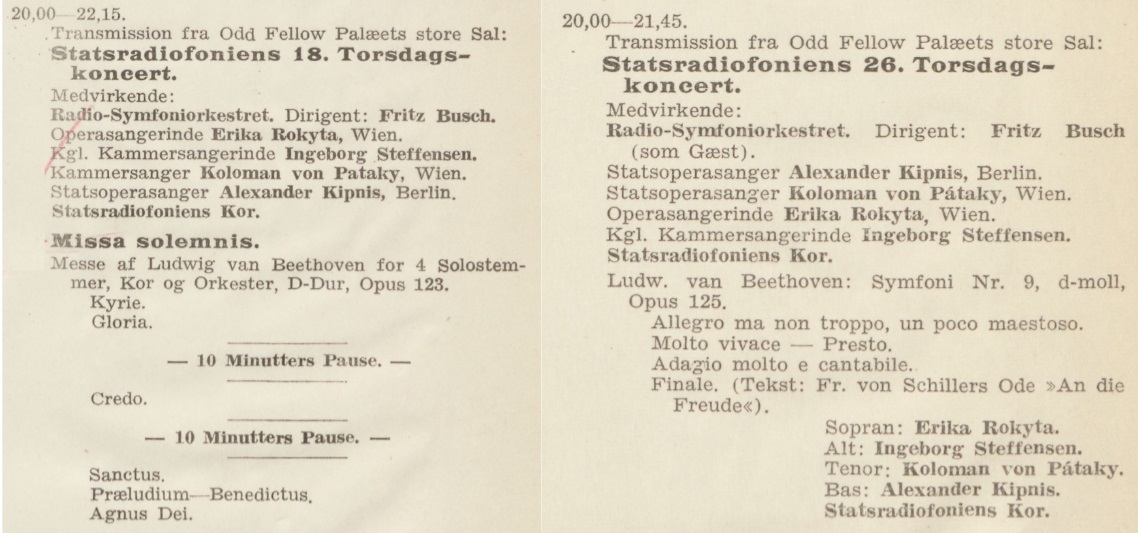
Alexander Kipnis and Fritz Busch have performed together on numerous occasions, such as here at the Danish Radio, but also at the Teatro Colón in Buenos Aires, notably Mozart Don Giovanni (Commendatore), Strauss Arabella (Graf Waldner), Rosenkavalier (Ochs), Wagner Fliegende Hollander (Daland), Götterdämmerung (Hagen), Lohengrin (König Heinrich), Parsifal (Gurnemanz), Rheingold (Fasolt), Tannhäuser (Hermann), Tristan (Marke), and Walküre (Hunding), at the Montevideo Opera for Wagner Walküre (Hunding), and briefly at the MET for two Wagner operas, Tristan und Isolde (Marke) and finally Tannhäuser (Hermann) for Kipnis’ last public performance of an opera on May 6, 1946.
By the mid-1930s, Kipnis was at his peak, and these recordings show it, the crowning of which being this truly his historical performance in Beethoven’s Ninth Symphony, where he is very much better than with Toscanini (Teatro Colón July 24, 1941 – Music & Arts CD-1119).
In the Finale of the ‘Ninth’, Busch takes a maximum of risks, not hesitating to push the orchestra and the chorus beyond their limits, which at times brings the performance to the brink of breakdown. We are not used to such tension from this conductor, whose reputation is rather that of a classic. In this respect, this recording is truly a unique testimony.
It should be noted that the recording of Chorus n°28, which ends the second part of Haydn’s Creation (Die Schöpfung), was never published before.
We can also enjoy hearing other famous singers, namely Erna Berger, Julius Patzak and Koloman von Pataky.

Busch Quartet: Adolf Busch & Gösta Andreasson, violin I & II; Karl Doktor, viola; Hermann Busch, cello Beethoven Quartet n°7 Op.59 n°1 New York Liederkranz Hall – May 15 & 25, 1942
Beethoven Quartet n°7 Op.59 n°1 New York Liederkranz Hall – May 15 & 25, 1942
Haydn Quartet Op103- Menuetto – New York Liederkranz Hall – May 25,1942
Source: 33t/LP CBS/SONY SOCU 12
Le Quatuor Busch a enregistré les trois quatuors de l’Opus 59 (‘Rasoumovsky’).
Le premier à être enregistré a été le n°9 Op.95 n°3, à Londres, dans le studio n°3 d’Abbey Road les 10 et 16 novembre 1933.
Le quatuor n°8 op.95 n°2 l’a été à New York, au Liederkranz Hall, les 28 et 29 mai et le 2 juin 1941. Il s’agissait des toutes premières séances commerciales de Busch aux États-Unis. Il n’a jamais été publié en 78 tours, prétendument à cause d’une édition concurrente chez Victor (RCA) par le Coolidge Quartet, et il a fallu attendre 1981 pour qu’une publication en microsillon apparaisse, mais seulement au Japon (CBS/SONY 20 AC 1295 et 20 AC 1883), sans qu’ensuite une édition en CD voie le jour. Il faudra pour cela attendre 2004 et c’est Biddulph qui le fera (CD 80208-2).
Enfin, le quatuor n°7 Op.95 n°1, enregistré en 1942 est paru normalement en 78 tours.
Comme le quatuor n°7 Op.95 n°1 occupait un nombre impair de faces, le Menuetto du quatuor inachevé Op.103 de Haydn a été choisi pour servir de complément. Bien qu’il ait eu une trentaine de quatuors de Haydn à son répertoire, il ne reste aucun autre enregistrement d’un quatuor de Haydn par le Quatuor Busch*, même parmi les archives radiophoniques, et de plus, si ce Menuetto a fait l’objet de plusieurs publications en microsillon, il n’y a pas eu de réédition en CD, si bien qu’il est devenu une rareté discographique.
*En Europe, Fred Gaisberg a donné l’exclusivité discographique des Quatuors de Haydn au Quatuor Pro Arte pour la Haydn Quartet Society, et aux Etats-Unis, l’Op.51 (Les Sept Dernières Paroles du Christ), que le Quatuor Busch tenait beaucoup à enregistrer, a été attribué au Primrose Quartet.
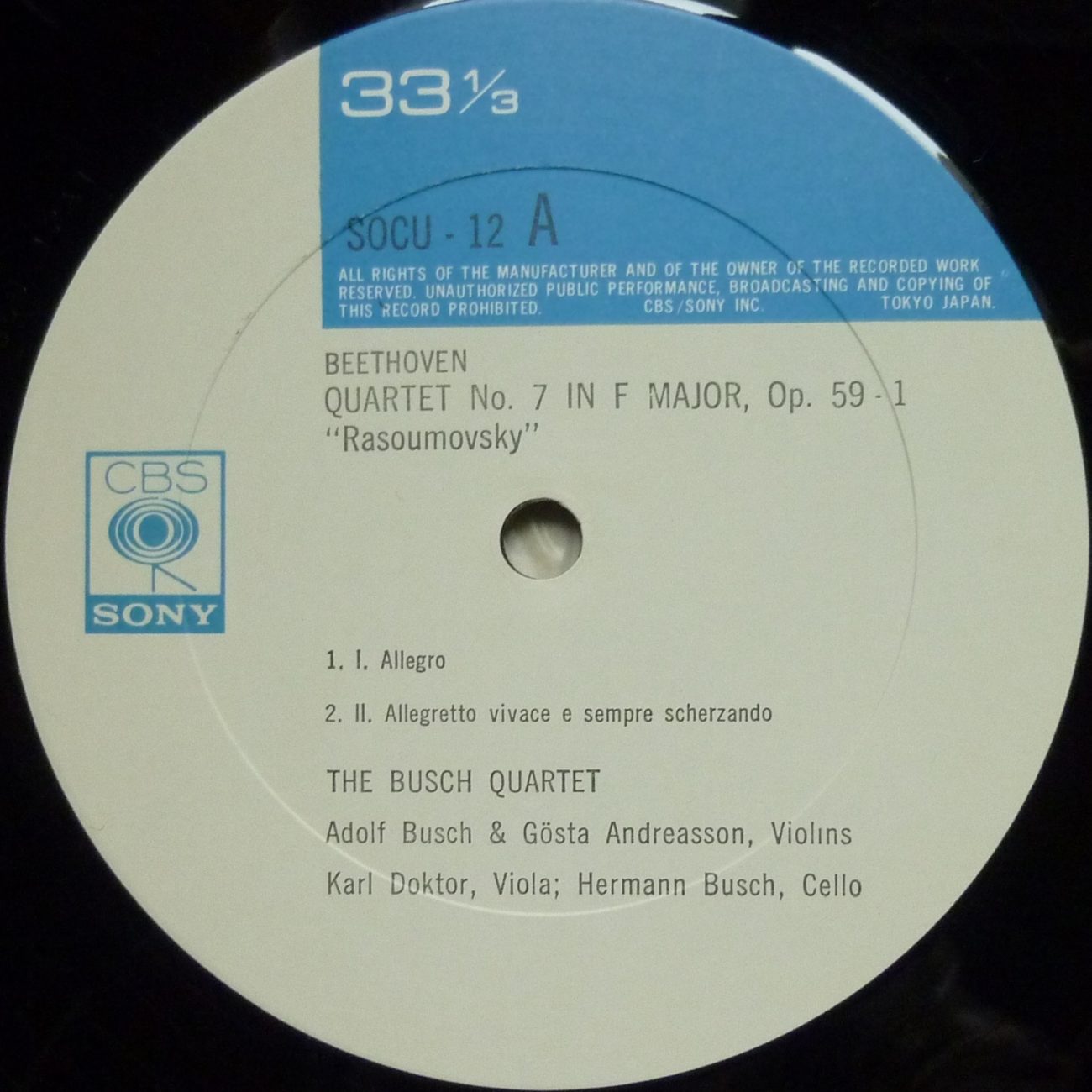
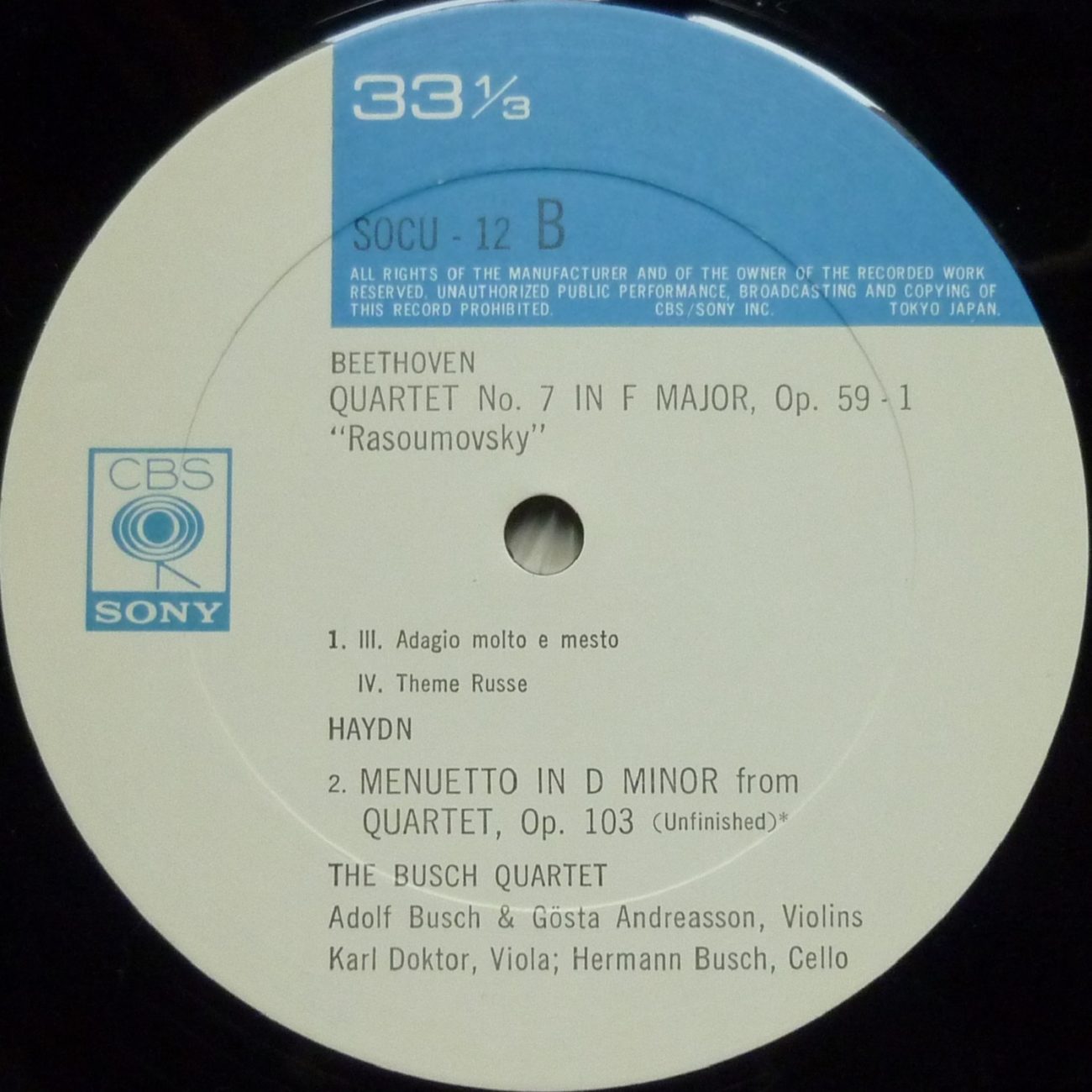
The Busch Quartet has recorded the three quartets from Opus 59 (‘Rasoumovsky’).
The first was n°9 Op.95 n°3, in London, in Abbey Road studio n°3 on November 10 and 16, 1933.
N°8 Op.95 n°2 was recorded in New York, at the Liederkranz Hall, on May 28 and 29, and June 2, 1941, Busch’s very first commercial sessions in the USA. It has never been published on 78rpm records, supposedly because of another competitive issue from Victor (RCA) by the Coolidge Quartet, and it was not until 1981 that a LP Edition surfaced, but only in Japan (CBS/SONY 20 AC 1295 et 20 AC 1883), and without a further CD issue. This happened only in 2004 and it is Biddulph that published it (CD 80208-2).
Lastly, quartet n°7 Op.95 n°1, recorded in 1942 was published in due course on 78 rpm records.
As quartet n°7 Op.95 n°1 needed an uneven number of sides, the Menuetto from Haydn’s Unfinished quartet Op.103 was chosen as a filler. Although it had about thirty Haydn’s quartets in its repertoire, there remains no other recording of a Haydn quartet by the Busch Quartet*, even in the Radio Archives, and more, if this Menuetto has been published several times on LP, there has been no CD re-issue, so that it has become a discographic rarity.
*In Europe, Fred Gaisberg granted a discographic exclusivity of the Haydn Quartets for the Haydn Quartet Society to the Quatuor Pro Arte, and, in the USA, Op.51 (The Seven Last Words of Christ), which the Busch Quartet was eager to record, was given to the Primrose Quartet.
